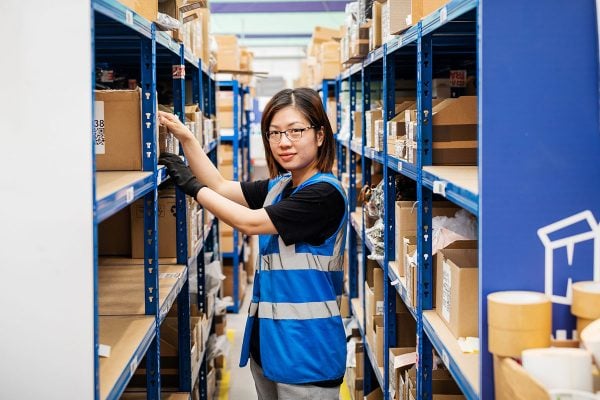Thanks to soaring prices in the UK, Brits have been tightening their purses but these unavoidable concerns are conflicting with growing pressures to live and breathe more sustainable.
Brands develop alongside consumer desire, and for a while that desire seemed to be heading towards green practices—recyclable packaging, carbon offsetting, natural products, etc. Many consumers were keen to stop murdering sea turtles with plastic, and rightfully so, but how are the British public expected to live sustainably and how are businesses expected to continue following these costly sustainable practices if consumers can’t afford it?
When looking at the fashion industry, research from Bazaarvoice found that almost half of Brits can’t afford to be more sustainable despite wanting to, because the cost difference is too high. Consumers feel more can be done by brands to make eco-friendly shopping easier on the wallet but is it that easy?
The process of making eco-friendly goods is more complex and for that reason more expensive than the less sustainable options like fast fashion. Bigger brands could perhaps offer cheaper eco-friendly options but for SMBs, lowering prices can hit harder. Even if the bigger brands began offering sustainable options at cheaper prices would SMBs cope when an already highly competitive industry becomes even more so?
The trust dilemma
Interestingly the same research found that 29% of consumers believe that brands use sustainability programmes as a marketing ploy. This means that brands using sustainable options need to be transparent and authentic by making their mission clear and demonstrating cooperation to becoming more eco-friendly. Since consumers are also looking to brands for more education on sustainable ecommerce, offering places where customers can educate themselves on sustainable practices is a bonus.
It’s important that brands and retailers are either able to offer sustainable options that are affordable, or that they are able to take the guilt out of fast fashion purchases by properly promoting—and following through on—their sustainability commitments. To build trust, companies ultimately need to do more than just talk the talk, they need demonstrate their willingness to contribute to the greater good. But they must do so in a way that’s authentic, transparent, and backed by actions that drive real change.
– Ed Hill, SVP EMEA, Bazaarvoice










4 Responses
My view (as a seller of sustainable products) is that even according to the numbers you quote “almost half of Brits can’t afford to be more sustainable”, that means that over half can – so there is a big opportunity there. The second point is that if you are not doing it for cynical reasons but because you think it’s the right thing to do, then it’s not a discussion – you just do it. At The Mothership we are interested in buying sustainable ecom companies (or ones that have the ability to become more sustainable) and building them into new consumer brands. Our view is that sustainability will move from being a differentiator to being table stakes for many.
Only a small fraction of people are pushing this stuff on us. Most don’t think it’s an issue, and many that do think that more polluting countries should be doing more to help. Just based on people I’ve spoken to.
Why exactly should we destroy our standard of living when all the big polluting countries carry on as usual (I don’t need to even name them). All the green stuff pushed on us is just virtue signalling, nothing more.